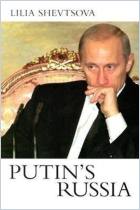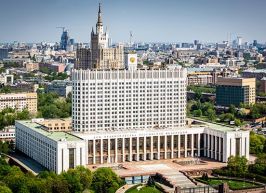Melden Sie sich bei getAbstract an, um die Zusammenfassung zu erhalten.

Melden Sie sich bei getAbstract an, um die Zusammenfassung zu erhalten.
Fiona Hill and Clifford G. Gaddy
Mr. Putin
Operative in the Kremlin
Brookings Institution Press, 2015
Was ist drin?
Foreign policy experts paint a nuanced, sophisticated portrait of Russia’s enigmatic president.
Recommendation
Brookings Institution senior fellows Fiona Hill and Clifford G. Gaddy paint a nuanced portrait of the enigmatic Russian leader once described as the “man without a face.” As US foreign policy experts, they go beyond the clichés in other Putin biographies to craft a more sophisticated view of what motivates him. They describe Putin’s past and his KGB career, and explore the way he developed his aggressive concepts of capitalism, foreign policy and internal security. With their painstaking research, political expertise and dispassionate style, Hill and Gaddy reveal a complex, cunning and sometimes contradictory man who demands to be understood on his own terms.
Summary
About the Authors
Fiona Hill is director of the Center on the United States and Europe at the Brookings Institution, where she is the Stephen and Barbara Friedman Senior Fellow in Foreign Policy. Clifford G. Gaddy is a senior fellow in the Foreign Policy program.






















Comment on this summary